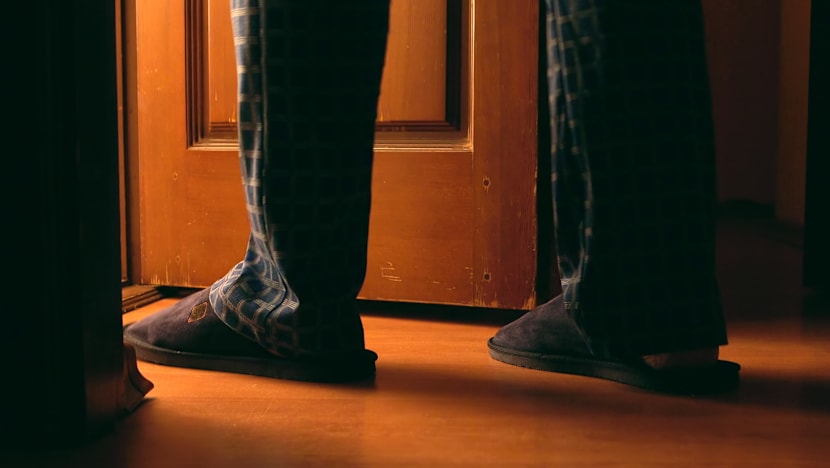Health
Managing Nocturia: Understanding Nighttime Urination Issues

Waking up at night to use the bathroom, known as nocturia, affects about one-third of adults over 30 and nearly half of those over 65. It becomes a medical concern when individuals experience this urge more than twice a night or have difficulty returning to sleep afterward, according to Dr. Jeffrey Weiss, chair of urology at SUNY Downstate Health Sciences University. While nocturia itself is a symptom rather than a disease, it can indicate underlying health issues.
Nocturia can arise from various causes, including urinary tract infections, overactive bladder, diabetes, heart disease, and sleep apnoea. The condition commonly stems from two primary factors: excessive urine production at night or a reduced bladder capacity. As people age, changes in hormone levels and kidney function can lead to increased nighttime urine production, according to Dr. Donald Bliwise, a sleep specialist at Emory University Medical Center.
Understanding the Causes of Nocturia
Age significantly influences the likelihood of experiencing nocturia. Younger individuals typically produce the majority of their urine during the day. However, hormonal changes and diminishing kidney function cause older adults to produce more urine at night. Furthermore, age-related factors such as decreased bladder elasticity and weakened pelvic floor muscles contribute to increased occurrences of nocturia.
Several medical conditions can increase the risk of nocturia at any age. For instance, diabetes and hypertension can lead to an overactive renal function, producing more urine. Pregnant women may also experience nocturia due to the pressure of the uterus on the bladder, as well as fluid redistribution when lying down. Additionally, conditions such as heart failure and venous issues can cause swelling in the legs and ankles, which can exacerbate the problem at night.
Sleep apnoea is another contributing factor, as disrupted breathing can lead to increased nighttime urine production. The use of a continuous positive airway pressure (CPAP) machine may help reduce nocturia symptoms, according to Dr. Bliwise.
When to Consult a Healthcare Professional
Nocturia can indicate more serious underlying health issues and may also contribute to insomnia. Once awakened, individuals may find it difficult to return to sleep, leading to increased anxiety and stress. Dr. Alison Huang, a primary care physician at University of California San Francisco Health, noted that nocturia can also pose safety risks, with a 2019 analysis indicating a 20% increased risk of falls and a 32% heightened risk of fractures associated with nighttime trips to the bathroom.
Given these risks, it is prudent to discuss nocturia with a healthcare provider, particularly if it disrupts sleep, leads to bedwetting, or if there is a sudden increase in nighttime urination frequency.
Practical Strategies to Reduce Nocturia
While the effects of aging cannot be reversed, simple lifestyle modifications can alleviate nocturia symptoms. Enhancing sleep hygiene is one effective approach. Avoiding caffeine, alcohol, and large fluid intakes in the hours before bed can significantly reduce nighttime awakenings. Dr. Huang recommends steering clear of beverages two to four hours before sleeping, although minimal intake with medications or thirst is acceptable.
Certain foods, particularly those with high water content, such as asparagus and watermelon, may increase urination and should be consumed mindfully. Limiting sodium intake can also aid in reducing fluid retention. For individuals experiencing swelling in the lower extremities, wearing compression stockings and elevating the legs may provide relief.
Individuals with overactive bladders can benefit from pelvic floor exercises designed to strengthen bladder control. A healthcare provider may also assess any underlying medical conditions and review current medications. In some cases, specific medications can help regulate bladder and kidney functions, though they may not be suitable for everyone.
As Dr. Huang noted, managing nocturia often requires a combination of strategies tailored to individual needs. There is no singular solution that fits all, making it essential for patients to work closely with their healthcare provider to identify effective interventions.
-

 Lifestyle4 months ago
Lifestyle4 months agoHumanism Camp Engages 250 Youths in Summer Fest 2025
-

 Business4 months ago
Business4 months agoKenvue Dismisses CEO Thibaut Mongon as Strategic Review Advances
-

 Sports4 months ago
Sports4 months agoDe Minaur Triumphs at Washington Open After Thrilling Comeback
-

 Top Stories4 months ago
Top Stories4 months agoColombian Senator Miguel Uribe Shows Signs of Recovery After Attack
-

 Sports4 months ago
Sports4 months agoTupou and Daugunu Join First Nations Squad for Lions Clash
-

 Health4 months ago
Health4 months agoNew Study Challenges Assumptions About Aging and Inflammation
-

 World4 months ago
World4 months agoASEAN Gears Up for Historic Joint Meeting of Foreign and Economic Ministers
-

 Business4 months ago
Business4 months agoOil Prices Surge Following New EU Sanctions on Russia
-

 Entertainment4 months ago
Entertainment4 months agoDetaşe-Sabah Violin Ensemble Captivates at Gabala Music Festival
-

 Entertainment4 months ago
Entertainment4 months agoBaku Metro Extends Hours for Justin Timberlake Concert
-

 Business4 months ago
Business4 months agoU.S. House Approves Stablecoin Bill, Sends to Trump for Signature
-

 Top Stories4 months ago
Top Stories4 months agoRethinking Singapore’s F&B Regulations Amid Business Closures









